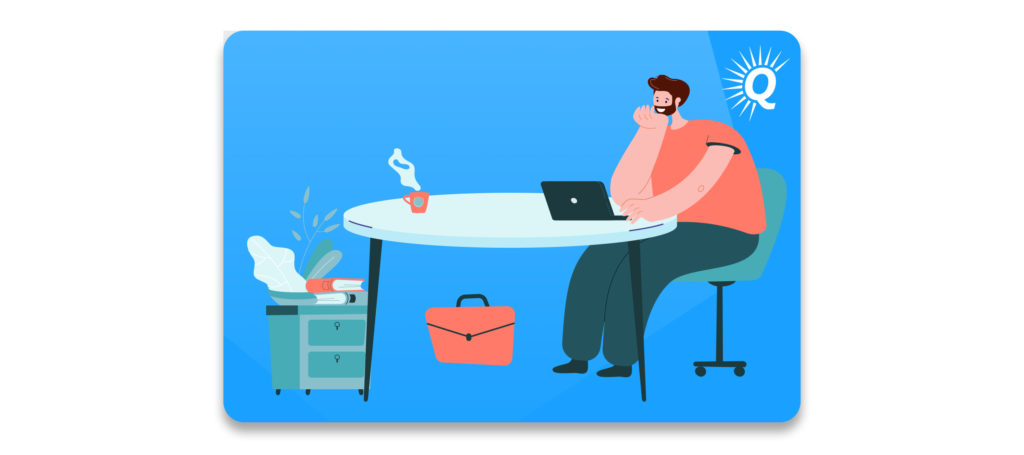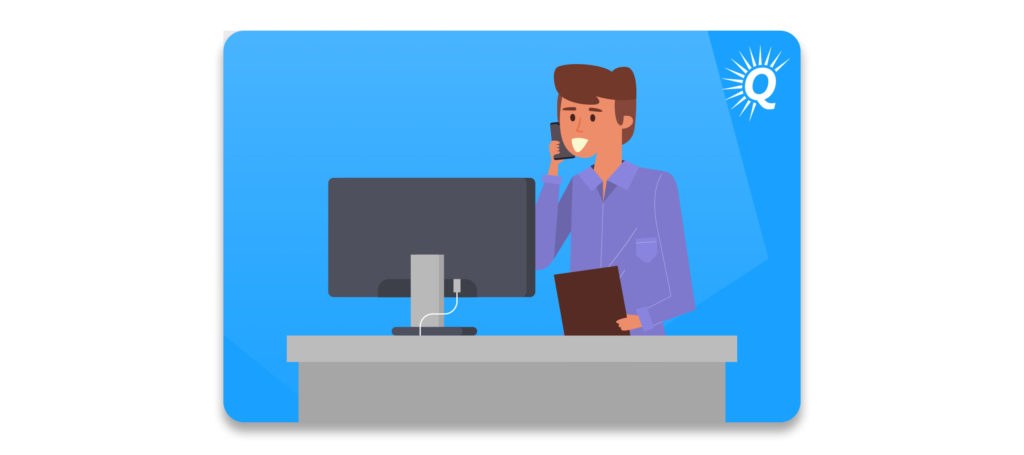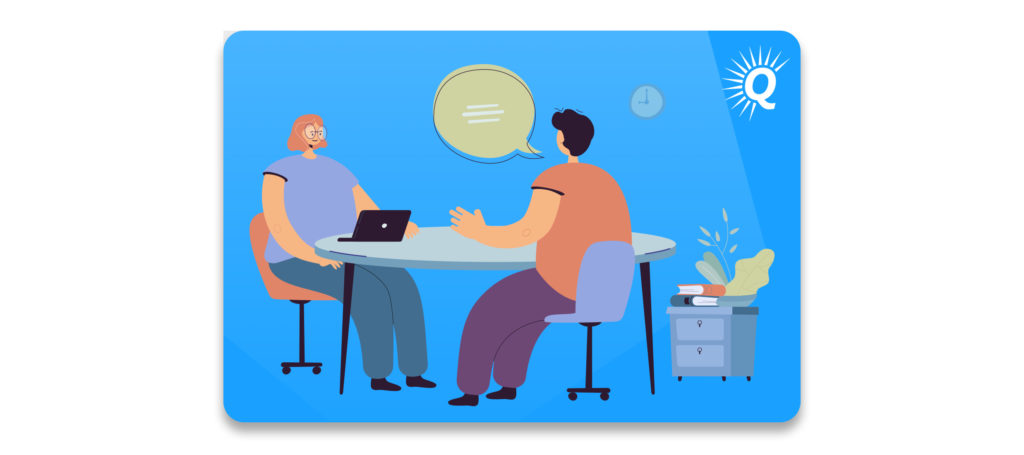Topics:
Never Miss a Beat - Get Updates Direct to Your Inbox
FILTER:


What Do Buyers Look for in an Amazon FBA Business?
By Quiet Light
Amazon is one of the leading marketplaces in the world, making it no surprise that entrepreneurs from all walks of life want to get in on the action and own their own Amazon FBA business.
This is good news for any new owners looking to grow a business from scratch, as well as those seeking to sell an existing Amazon FBA Business.
If you are the latter, you may be wondering what a prospective buyer looks for when seeking to buy an existing online business, and how you can optimize your own business to meet those standards.
Related article:
Four Tips to Increase the Value of Your Amazon Business


This article will answer all of the most important questions about selling an Amazon FBA business to help you execute a successful and lucrative exit.
Who Is Buying An Amazon FBA Business?
When you go to sell your business, one of the first things you need to consider is who you can sell it to. There are many different buyers seeking to acquire an Amazon FBA Business, and knowing what your own goals are in the sale will help you understand what kind of buyer is the best fit for you.


However, before jumping ahead, let’s address the first question you need to consider: is your business even sellable?
Can you sell your Amazon FBA business?
The answer to this question is very simple, yes. Amazon FBA businesses can be sold and acquired. In fact, Amazon makes it relatively easy for this transfer of ownership to take place.
There is one clear reason why Amazon permits the sale of FBA businesses:
When a potential buyer begins looking for an acquisition, they usually do so with the intent of growing whatever business they purchase. This means more revenue and more money for Amazon. Why would Amazon want to stand in the way?
It might be natural to think, “My business can be sold, but is there anyone out there that wants to buy my business?” Once again, the answer is a resounding yes!
According to the Quiet Light podcast: “Amazon’s going all-in on FBA”.
This means that the opportunity is enormous for entrepreneurs. In fact, typically, there are more buyers than sellers active in the marketplace.
This makes sense too, doesn’t it? Starting a business from scratch is a lot of work. Who would want to put in all the effort and years needed to grow a business when they are able to acquire one that is already in its prime?
Buying an established business eliminates the fear that most entrepreneurs have when just starting out their own business—there is a good chance that it can fail.


What does all this mean?
It means that if you have been a careful, diligent, hard working business owner, whose company is in good shape, you have an excellent chance of selling your business for a nice profit.
What are the four types of buyers?
As mentioned before, there are many different types of buyers on the market, and knowing which one fits your needs is essential to a successful business sale.
So, what are the four types of buyers? The following is taken from Quiet Light’s article, “The Ultimate Guide to Buying, Valuing and Selling Amazon Businesses”
- Private Equity: These are investment funds that are dedicated to buying, growing, and selling private companies
- Microfunds and Syndicates: Mini private equity funds. Smaller deal sizes (1 mil. – 5 mil.) Clear transactions (seller receives most of their value at closing)
- Private Portfolios: Private portfolios are generally owned by individuals. Deal sizes can vary, but they’re typically around $1 million or less. Often, private portfolio buyers use an SBA loan. Deals usually close relatively quickly. The seller usually gets most of their value at closing.
- Individuals: Individual buyers are C-Level executives who want more flexibility in their work-life. These deals can be up to $5 million but generally fall below $2.5 million.
Finally, these buyers can be broken down into one of two types: Strategic (those for whom the business will help to achieve a specific strategy), and Investment (those who buy a business as is, without planning to use it to leverage another business).
How much do amazon businesses sell for?
Amazon FBA Businesses can vary quite a bit in range, and a lot of it really depends on your company, its financials, potential ROI, and risks.


If you take the time to grow your business, keep clear, accurate financials, and have excellent products, your business could be worth quite a bit.
There are many factors that determine the value of your business, but the most important of these is getting an accurate Seller’s Discretionary Earnings Value. Check out this quote from the podcast previously mentioned to see just how important this is:
“However, the most crucial variable is the trailing 12 months of Seller’s Discretionary Earnings (SDE), since Amazon businesses are valued using an earnings-based multiplier rather than a revenue-based multiplier. In short, SDE is the money that is left for the owner after all core business expenses have been paid.”
Your SDE determines your multiple, which is essentially how much you can sell your business for. It is determined based on your financials, profit margins, and many other factors that we will go into later.
Getting an accurate SDE is important since it will reflect your true business value
Thinking of Selling Your Business?
Get a free, individually-tailored valuation and business-readiness assessment. Sell when you're ready. Not a minute before.
Should you start an Amazon FBA business or purchase an existing one?
Amazon FBA is not difficult to get into, but it is exceptionally difficult to succeed at. Kind of like being an athlete: anyone can do it, but not everyone is going to become a pro.
Starting a business from scratch takes work, planning, patience, skill, and great timing. Even if all of these attributes are there, you still run the risk of failure.
The truth is building a successful Amazon FBA business is hard. You face many barriers to success. This does not mean you can’t be successful, it just means you need to be prepared for the long haul.
Purchasing an existing FBA Business takes some of the risk out of the equation. You are acquiring the online business after those start up days have passed. This means you are getting the business in its prime.


It also means learning a new business from the ground up, and some people would prefer to do this groundwork themselves. So, whether or not you should buy an existing business, or start from scratch really depends entirely on your goals.
How Does Selling an Amazon Business Work?
First things first: if you are planning to sell your online business it is important that you have given considerable thought to the process before even starting it! Selling an online business takes a tremendous amount of work, time, and planning.
Ideally, you have been planning your exit strategy since day one, but if not, then you should have spent at least several months preparing, which includes getting your financial statements in order and deciding on the ideal type of buyer for your business.
Selling a business to a prospective buyer is not something done on a whim—it takes meticulous planning.
Once this ‘planning phase’ has been completed, your next step is to ask yourself what you want out of the sale.
As mentioned above, there are many different buyers who will give you different outcomes when selling. Do you want a clean break from your business? Do you want to stay involved in some capacity?
Knowing the answer to these questions in advance helps you to identify the right buyer, making your job that much easier.
The next step when selling, and perhaps the most important step, is getting an accurate Seller’s Discretionary Earnings Value (SDE). This is how your business will be valued.
Do you need an LLC to sell on Amazon?
Many people wonder if they need a business license or an LLC to sell their products on amazon. The simple answer is no, you do not. Since many products on Amazon are not Federally regulated, you do not need a license to sell them. Similarly, Amazon itself does not require a license to use its services.
What are the differences between an ecommerce business and selling on Amazon?
E commerce is a broad term that refers to selling on the internet, while selling on Amazon refers to… yep, selling on Amazon. Often, Amazon sellers utilize FBA (Fulfillment By Amazon—a service in which Amazon charges a vendor a certain amount in return for use of Amazon’s fulfillment services).


Amazon FBA has grown significantly in the last few years, largely due to the fact that it removes many of the hurdles of selling online. Sales, inventory management, fulfillment, and returns can all be easily managed on the platform.
If you are considering selling online, Amazon FBA is an excellent choice, but not the only one. Other companies such as Etsy or Walmart are also excellent platforms to sell on. It all depends on your individual goals.
Do you need a business license or importing license to sell on Amazon?
Again, the simple answer is no. Amazon does not require special licesnses for most product categories.
However, many sellers choose to register a business license and LLC for legal protection reasons. Of course, it’s always a good idea to consult with an attorney when forming a new business.
When it comes to selling your business, there are often benefits to having an LLC or business license.
Factors Influencing The Value of Amazon FBA Business
How are FBA Businesses Valued?
To answer this, let’s take a look at what Quiet Light calls ‘The Four Pillars of a Sellable Business’:
- Growth
- Risk
- Transferability
- Documentation
Within each of these, there are numerous factors to consider.
How old is your business?
Let’s face it, young businesses are riskier. A business under two years old typically hasn’t had enough time to establish itself. It may be flourishing, but it hasn’t stood the test of time.
Early success may be based on a number of factors: excellent startup timing, increasing product demand, hard work, and planning, or perhaps just luck. What it doesn’t show, however, is sustainability.
This is not to say that there are not excellent young businesses out there! If you are reading this and you have a beautiful baby business booming in the background, you should certainly be proud of yourself.
However, you should know that if you are looking to sell your business, buyers are always going to want to see stability and growth from a business before they make an offer.


The best way to show these two attributes is to give your business time to mature. Usually, buyers want to see the business get past that two-year mark before they are willing to buy, or even consider making an offer.
Do some buyers look to acquire businesses in their youth? Absolutely.
The majority, however, will want to know that the business has an excellent track record and can stand the test of time before considering an offer.
How many products do you sell?
Companies that only sell one product are far less appealing to buyers. What happens if that product suddenly stops being in demand? If you capitalized on selling star wars figureheads when the new movies were coming out but you sell nothing else, then what will happen to your business when Star Wars goes out of style?
(Side Note: Star Wars will hopefully never go out of style)
One great way to increase the growth and value of a business is to add new products to your business. Buyers who are entering into your business want to be able to see what new products could lead to potential growth and profit.
Having several successful products helps to ensure that your business is stable and less exposed to risk.
Also, having unique products is a great way to increase the likelihood of winning the Amazon Buy Box.
If you have a unique product and competitive prices, there’s a good chance that Amazon is going to love your company.
Is there a high or low barrier to entry?
When looking to sell products on the amazon market, it is smart to do a bit of research to determine what products will give you a competitive edge.
Products with a low barrier of entry are ones you can easily acquire and sell. As an Amazon seller, it may not be in your interest to start off selling products that are easy to launch. However, since they have such a low barrier to entry, you’re likely going to have a lot of competitors.
This gives you no competitive edge. Sure, it may be cheap to get a bunch of phone chargers to sell, but if everyone else is doing the same, you have no corner on the market.
Selling more obscure, higher demand products will give you an edge. There may be a higher barrier to entry, but that means less competition.


Offering unique products also helps ensure that you win the Amazon Buy Box.
The Amazon Buy Box algorithm looks for unique products that are sold at a lower price then their competitors, and if you are one of the few selling a product, you have a higher likelihood of winning.
Is Your Business Growing?
When valuation occurs, one of the key areas that are looked at are your top-line vs. bottom-line trends.
Top-line trends
Top-line trends refer to the trend of your total revenue. This shows whether or not your sales are increasing or decreasing, and is a key figure to be looked at to determine the value of your business.
Bottom-line trends
Even more important are your bottom line trends, which is the increase or decrease of your profits over time.
Timing
You want to time your business sale to when your business is experiencing strong growth. This shows a buyer that they will likely have a rapid ROI, which eliminates some of the stress and potential risk from the acquisition.
Built-in growth opportunities
Built-in growth opportunities refer to areas of your business that a new owner can easily take advantage of following acquisition. Examples of built-in growth include untapped product listings that a new buyer could explore further, and well as potential platforms to sell on. As discussed, these all increase your business’s value.


One other area that a buyer may look at is advertising. Advertising on the Amazon marketplace has changed drastically throughout the last few years. If the amount of money and time spent on advertising has left a deficit in optimization, a buyer will seek to exploit untapped advertising potential when buying the business.
How Risky Is Your Amazon FBA Business?
Age
As discussed previously, all else being equal, an older business is far more valuable to a potential buyer. Buyers want to see longevity because they know this means the business can stand the test of time and maintain viability.
Size
Size is an incredibly important factor that a prospective buyer considers. Different Amazon FBA businesses are of different sizes. Depending on the size of your company (at least in regards to value) the perceived risk for a buyer changes.
Smaller businesses are seen as more of a risk. This is understandable since a business yielding a smaller profit will provide less money to the new owner over time.
Businesses that are in the 500 thousand range or above show greater potential for profit, and will therefore be less of a risk for prospective buyers.
Multi-platform or Amazon only?
It’s important to mention that Amazon is not the only platform that buyers care about.
As we have discussed previously, any potential buyer is going to assess the risks of acquiring an online business before they buy. If a potential buyer sees that your business only uses the platform to sell its goods, then they are going to assess you as a high-risk acquisition.
Now, you may be thinking that Amazon is a booming industry that has stood the test of time and is likely not going anywhere for a while to come — and while you are most likely correct on this, it is absolutely no guarantee.


What would happen if Amazon suddenly went under? Would the world end? Probably not, but your business might suffer quite a good amount if you had placed all your eggs in Amazon’s basket.
To ensure that your business has the lowest risk perceivable to a buyer, it is important that you source your goods through multiple channels. This makes a buyer feel more comfortable since they know that there are fail-safes if one platform were to suddenly stop being viable.
Dependencies
Are there third party platforms, individuals, or vendors that need to be accounted for? Will these parties transfer to a new owner? Are they reliable? All of these questions are important to consider when selling your business, because a buyer will be looking for risks associated with any of them.
Is Your Business Transferable?
There are several key questions that help determine how easily your business can be transferred to a new owner.
Is the business dependent on your personal identity?
If you were to go to ‘Lily’s Coffee Shop’ every morning for a cup of coffee, presumably because you trusted Lily and her brand, you might become disheartened if one day you found that Lily had sold the shop. You may even be upset if you found out that Lily’s Coffee shop was going to keep the same name, but without Lily.
Some brands rely upon the trust between the owner and their customers. For the example above, you may go to Lily’s shop because you like and trust her as a person. So when the owner changes, you may reconsider where you stop for your morning coffee.
The same applies for many online businesses. Some brands rely too much upon the name of the owner in their marketing efforts, which can greatly complicate the transaction.
Keep it in mind if you are looking to sell and your personal name is attached to the name brand, then you will have a more difficult time.
Does the owner need to have specialized knowledge or qualifications?
Similarly, your pool of potential buyers will be smaller if there is specific expertise needed to sell your products. For example, if you’re selling medical equipment that requires the business owner to hold a specific license your pool of potential buyers will be severely limited.


This by no means is to say you can’t find a buyer who holds the required skills or credentials. Rather, it means you need to be patient, understanding, and perhaps a bit more diligent when searching for the right buyer.
How complicated is your business from an operations standpoint?
Is this a ship that only you can sail, or have you created a well-oiled machine that anyone can step into to operate? If your business is so complicated that no one could learn it in the time it takes to complete a deal on the purchase, then you are unlikely to find a buyer who will put in the work to learn.
You need to be certain that your business is able to be taken over by any prospective buyer who has the determination to do so. Ensuring that you are not the only cog in the machine that can keep it running smoothly increases your likelihood of selling, and increases the appeal for a buyer.
Do key staff transfer?
A ship’s captain may be in charge, but they are nothing without a good crew. In businesses in which responsibilities are effectively delegated, the ‘crew’ is just as important to keep the business afloat as the owner.
Thinking of Selling Your Business?
Get a free, individually-tailored valuation and business-readiness assessment. Sell when you're ready. Not a minute before.
If all of the key staff quit right after a business is sold, the new owner will find themself in quite a difficult situation.
Ensuring that there is good staff in place who will be willing to help the new owner is essential. Most buyers will seek to ensure that the staff plans to stick around before completing the sale.
Manufacturers
Will the manufacturers and suppliers work with the new business owner? This is important since without them, presumably there will be no business. Making sure there is a clear understanding among all third parties is essential to ensuring a smooth transition.
Contracts
This ties in directly with the previous point; you must ensure that any and all contacts that are required to run your business can readily be presented to the new owner.
If your business requires third parties to cooperate and participate in order for your business to run, then these relationships must be transferable. If they’re not, then a buyer will be unlikely to make an offer on your online business.
Is Your Business Well Documented?
Do you have clear financials?
Clear financials are KEY to a successful sale. If the buyer can’t see where your revenue is coming from, spent, and allocated, then they will not take the risk of buying your business.
Here are three key things to consider when getting your financial statements in order:
- Are your financial statements clear and accurate?
- Can you produce accrual financial statements?
- Do you have clear standard operating procedures?
Are your financial statements clear and accurate?
It’s of utmost importance that you are fully transparent, honest, and accurate with a buyer. Taking the time to get your business in shape before attempting to sell will give you a leg up on other sellers.
Before going to market, be sure to get fully organized. Doing so will help you avoid costly mistakes.
On that note, be transparent if you DO make a mistake. Simply correct it, and move on with the deal under the new understanding. Clear and accurate means owning up to any mistakes you made.
Used Accrual Accounting
This is important to have because it shows more accurate information regarding your SDE, and allows for people to see more clear and identifiable trends in your business.
For more information on accrual basis financial reporting, check out Quiet Lights comprehensive guide here.
Do you have Standard Operating Procedures (SOPs) in place?
This is of utmost importance. If there are no SOP’s that can be easily identified, followed, and implemented by the new business owner, then it will be much more difficult for them to run the business.
Buy a Profitable Online Business
Outsmart the startup game and check out our listings. You can request a summary on any business without any further obligation.
Well-documented SOPs make it easy for the new owner to quickly learn and understand all of the core processes in your business. You have spent years building and refining your business, so don’t assume other people know what you know.
Are you providing third-party reports?
Unless you have your own factory, you are most likely getting your products from a third party supplier. Furthermore, you are also selling your goods on a platform that is not your own: Amazon.
You have responsibilities to many different people and organizations, and presumably, you have clearly kept financial statements documenting your transactions with them all.
These financial records are important to have at the ready in case a buyer asks to look at them. As mentioned, transparency is key to healthy buyer-seller relationships.
More than likely, your buyer will want to know every business activity they will be taking over. Providing your third party reports to the prospective buyer is a great way to help them get caught up to speed.
Thinking of Selling Your Business?
Get a free, individually-tailored valuation and business-readiness assessment. Sell when you're ready. Not a minute before.





